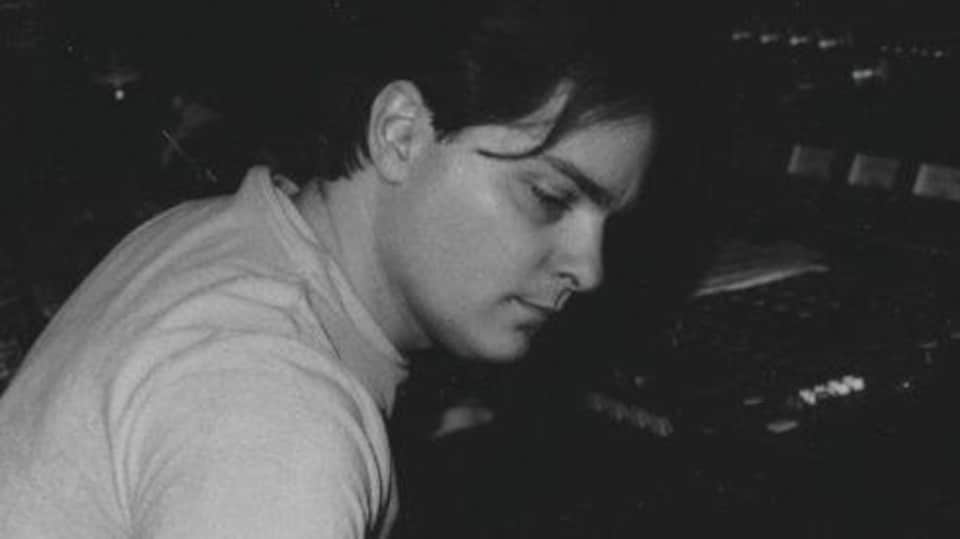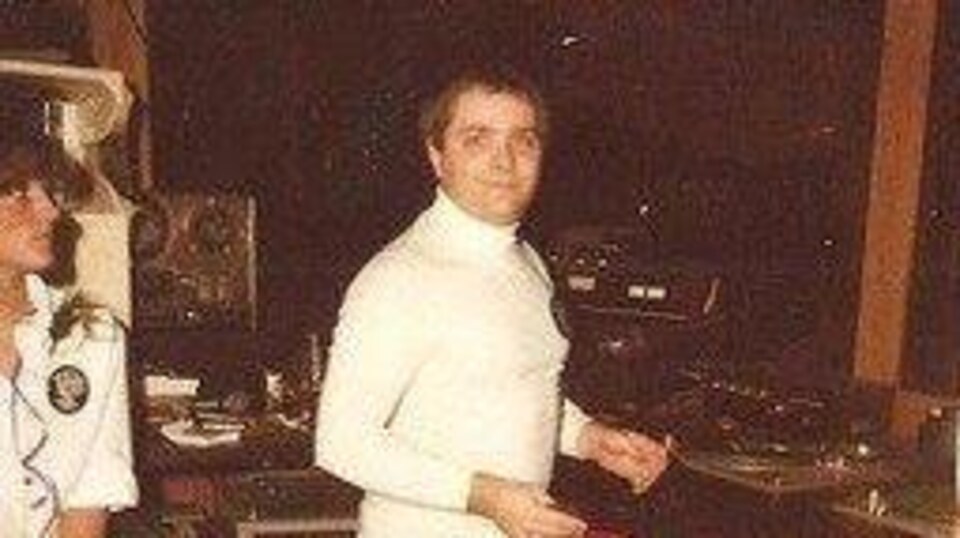Montrealer Robert Ouimet, one of the most influential DJs in Quebec history, passed away suddenly but peacefully on April 21 at the age of 74. From the Lime Light bar in Montreal, he changed the course of music history and gave inspired by dozens of disc jockeys.
Lime Light
May 1977, 1254 Stanley Street, in Montreal, just south of Ste-Catherine Street, we were in the middle of the downtown disco craze and the heartbeat was given by DJ Robert Ouimet at this disco called Lime Light. This nightclub, open from 1973 to 1981, has become a temporary Montreal mecca of disco music thanks to Ouimet.
On this spring night, Robert Ouimet holds in his hands the new single from American disco singer Donna Summer. He may have brought back this disc from New York, where he regularly attends the latest musical releases.
Being a DJ is not just being a jukebox
The new concept of Donna Summer’s album I Remember Yesterday, which will be officially released in a few weeks, is to take the listener back to the history of music. Each piece should evoke a musical decade.
The first single from the album held by Robert Ouimet contains side A, on side sockets (this is often how the face of a 45 rpm is defined by the record company as a success to be played on the radio), the piece Can’t we just sit down (And Talk It Over). It’s a honeyed pop ballad. One might think that the piece left Ouimet indifferent, as the B side caught his attention.
Robert showed us that being a DJ is not just being a jukebox , tells us his friend and longtime collaborator Christian Pronovost. Michel Simard, another of his close partners, added that he was a man who not only put on music, he studied the world. He played tunes that no one knew. Not to beg, to teach.
From Grandmaster Flash to Kraftwerk
To hell with it side sockets! Robert Ouimet likes what he hears on the B side at 45 rpm. The piece, mainly on the computer, is the work of composer Giorgio Moroder. These synthetic and repetitive sounds captivate him. The song is titled I feel Love is intended to represent the future of music, as part of Donna Summer’s concept album.
He is interested in everything electronic, explains Michael Williams, who met Robert Ouimet in 1973 when he was coming from Cleveland to live in Montreal. Michael Williams became a DJ himself, then a host on CHOM, CKGM and one of the first hosts of MuchMusic, in 1984. He can play songs from Grandmaster Flash and Furious Five and then successively Kraftwerk.describes Williams.
Social and technical innovations
I feel Love blew up the Limelight dance floor that night. The song was a success for Robert Ouimet’s evenings. Its influence is already great. After all, he was named best DJ in North America by the magazine Rolling stone in 1976.
Freaks in Montreal know they have to attend Ouimet parties if they want to experience new sounds and hits. His fame is great. But it’s not just new music that other DJs get from him. Montreal’s gay and straight communities mix in Lime Light. Montreal’s open-mindedness lives on within the walls of this club. It is an important element of society.
But not only that, on a technical level, Ouimet also leads in the art and mastery of turntables.
When I first went to listen to him, before I met him at Lime Light, it was the first time I heard someone say “ beatmatched “. I who was starting to be a DJ, I wondered how he managed to change tunes without me realizing it. I found that really impressive,” Michel Simard said.
This technique, nowadays, goes without saying in DJ culture. The tempos of the songs that the DJ puts together are adjusted for both their rhythm. The transition from one piece to another is very smooth, without being noticed by the listener or the dancer. In the late 1970s, this technique was new and required precise precision and good ears. This is achieved by DJ software now ” beatmatching “In an automatic way.
ang godfather of Montreal DJs
Always ahead of the wave, Ouimet makes people discover I feel Love to his audience as well as to other DJs who come to listen to his mix, such as Michel Simard, Michael Williams, Christian Pronovost and Flight Almighty. Success progresses from the dance floor to the dance floor, then the radio is hit.
The testimony published by Flight Almighty, a pioneer of hip-hop culture in Montreal, explains how a song played on Ouimet’s dance floor resonated on the radio.
When I lived in New York, as a kid, I was obsessed with DJs mixing and transferring songs on local radio. Arriving in Montreal in the 70s, I got a little lost in the music until I woke up one night and saw the show. Live from Lime Light with DJ Robert Ouimet, claims by DJ.
I’m crazy about it. I said to myself: “one day, I need to get to know him.” Life is funny, more than I ever met him. The two worked together in the 90s when Flight moved from hip-hop to home culture.
Ouimet therefore had an influence even on radio waves. A few weeks later, record company Casablanca realized that Donna Summer’s B side of 45 rpm had replaced the A side in popularity. The label was therefore forced to reissue the disc with, in this case, I feel Love opposite A. We are at the beginning of the summer of 1977.
The sound of the future
In July 1977, I feel Love climb the ranks of the charts Billboard. It reached number one in England and France, to name a few, and became the top 10 single in Canada and the United States that year. The futuristic sound of the room is poised to change the course of music history.
In a magazine interview Rolling stone in 2017, Giorgio Moroder, co-composer of the song, narrated a confession that David Bowie would have made to him. According to this story, Bowie was working in the studio with Brian Eno in Berlin when the song became a hit. When Eno heard this, he would have knelt down.
He reportedly ran into the studio to tell Bowie: Now I just heard the future of music! Bowie was slightly offended, believing himself to be creating the sound of the musical future with his Berlin trilogy. Eno reportedly told Bowie that this sound has the potential to be one that will be heard on dance floors in the next 15 years.
He was right then. Over time, I fFel Love constantly found himself on new lists of the most influential songs in history for all sorts of reasons. In particular, he had an important influence on the development of disco, new wave, post-punk, Hi-NRG music, dance and house. That’s all.
If Robert Ouimet had not chosen it, I feel Love this strange fate may not have been met and the history of music may not be exactly what it is today. In 1977, the magazine Billboard awarded him the title Canadian disco DJ of the year.
Rebel and iconoclast
This is just one example, perhaps the most notable, of the mark left by Robert Ouimet. Always forward-looking, he himself announced the demise of the disco in the late 1970s, according to his friend Christian Pronovost. His name is associated with disco music, but he’s also a very punk, iconoclastic person, Pronovost says. As much as he was associated with the disco, he was the one who killed it. Not only is he an iconic 70s DJ, he’s also a disco destroyer. Robert Ouimet was a rebel. He is a man who prefers to live his life and do the things he wants the way he wants than to be successful and earn money.
Ouimet did go on as a DJ. But he has also worked as a director and record producer as well as a composer in the field of dance music. In 1994, coincidentally, she won Juno for Dance Song of the Year for the piece Gratefulco-composed with his sidekick Michel Garça as part of their Red Light project.
It is for all these reasons – and many others that literally deserve a book to be fully explained – that Robert Ouimet was crowned. godfather of Montreal DJs. He did not stop his activities. One of his performances in 2021 was also captured and available on YouTube.
Source: Radio-Canada

